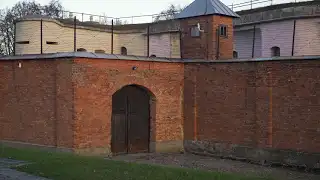Plumbing is a rewarding profession, but it comes with risks that can turn an ordinary workday into a dangerous situation. From collapsing trenches to falling equipment, plumbers and other tradespeople face hazards that require vigilance and safety awareness. In this blog, I’ll share some of the most dangerous experiences I’ve encountered as a plumber and the lessons I’ve learned to stay safe.
The Importance of Safety in the Trades
Plumbing jobs often require working in challenging conditions, from confined spaces to unstable environments. Safety isn’t just about avoiding accidents—it’s about ensuring you go home to your family every day. According to OSHA, thousands of construction workers face life-threatening risks each year. By sharing these stories, I hope to raise awareness and emphasize the importance of safety protocols.
The Hazards I’ve Faced
1. Cave-Ins While Tunneling
Tunneling under a house is a common task for plumbers, but it can be life-threatening if not done properly. Early in my career, I worked on a project tunneling under a Houston’s restaurant. Without understanding trench safety or having proper support systems, I found myself in a situation where a collapse could have been deadly.
What I Learned:
- Always use trench boxes or other safety equipment to stabilize walls.
- Never enter an unprotected trench deeper than 5 feet.
- Ensure there’s a safe exit in case of a collapse.
2. Steel Wall Collapse
One morning while working on a church construction site, a steel tilt wall fell, pinning me to the ground. Although I was wearing a hard hat, the wall’s impact injured my shoulder, requiring surgery. The wall wasn’t properly secured, and the wet ground contributed to the collapse.
What I Learned:
- Inspect the job site for unstable equipment or materials.
- Avoid working near unsecured tilt walls or heavy objects, especially after rain.
- Report unsafe conditions to site supervisors immediately.
3. Trapped Under a House
While working under a pier-and-beam house, I attempted to crawl under a beam where others had passed before. However, I became stuck between the beam and the ground. Without a cell phone, I had to use a screwdriver to dig myself out.
What I Learned:
- Always assess the space before entering tight areas.
- Carry tools and a communication device when working alone.
- If unsure, take the time to widen the space before proceeding.
4. Job Site Fatality
The most sobering experience of my career was witnessing the aftermath of a fatal accident involving a glazier on a construction site. He was working on a boom lift when the wet ground caused it to slip and topple, leading to his death.
What I Learned:
- Avoid using equipment on unstable or wet surfaces.
- Conduct a thorough inspection of all equipment before use.
- Follow manufacturer guidelines and site safety protocols to prevent accidents.
Key Takeaways for Safety
Always Follow OSHA Guidelines
OSHA provides clear guidelines for trench safety, equipment use, and general construction practices. Familiarize yourself with these standards to reduce risk.
Assess Job Sites Regularly
Inspect your work area before starting any task. Look for hazards like unstable ground, unsecured materials, or exposed electrical wires.
Use Proper Equipment
Invest in safety gear like trench boxes, hard hats, and fall protection. Ensure all tools and equipment are in good working condition.
Communicate and Plan
Always let someone know where you’ll be working, especially if you’re in a confined space or hazardous environment. Have a plan for emergencies.
Know When to Walk Away
If a job feels unsafe, speak up. No task is worth risking your life.
Final Thoughts
Plumbing and other trades are essential professions, but they come with real risks. By prioritizing safety and learning from past experiences, we can minimize those risks and ensure that we—and our coworkers—go home safely at the end of each day.
If you’re a plumber or work in the trades, I’d love to hear about your experiences. Share your safety tips or close calls in the comments. Let’s work together to make our industry safer for everyone.




